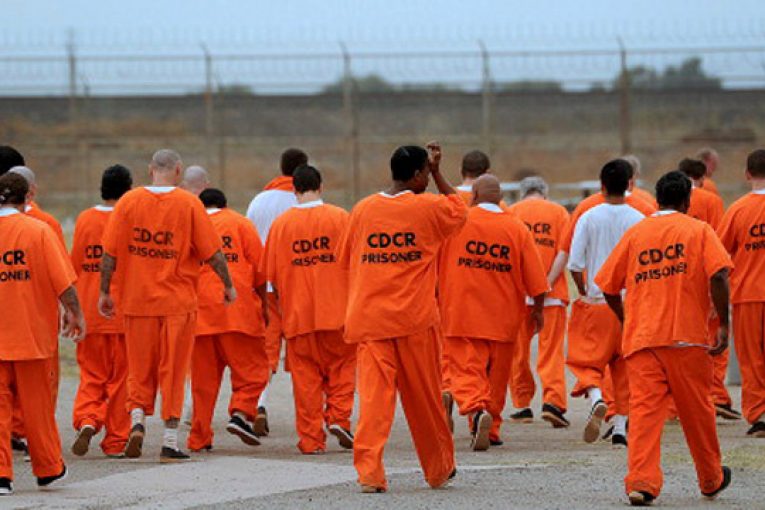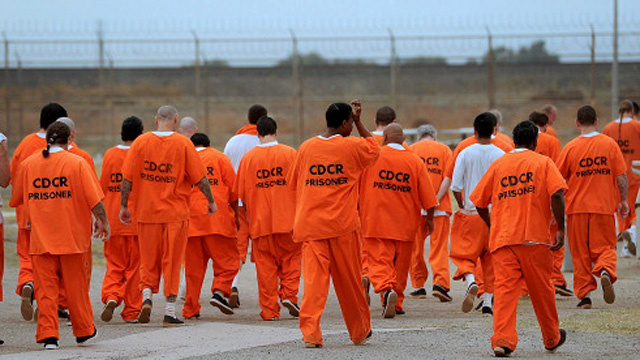

By Anika Khubchandani and Ganga Nair
OAKLAND, CA – Gov Gavin Newsom last week introduced the California County Resentencing Pilot Program, also known as “the Pilot,” into California’s 2021 Budget Act.
The Pilot program provides $18 million dollars across nine California counties to implement Prosecutor-Initiated Resentencing (PIR) as a criminal justice reform.
For the People, a national non-profit organization headquartered in Oakland, CA that focuses on empowering prosecutors to revisit and reevaluate excessive prison sentences, helped lawmakers in 2018 to pass CA Assembly Bill 2942, the first ever PIR legislation.
The Pilot program’s $18 million investment takes the organization’s work a step further- helping more incarcerated people reunite with their loved ones and rejoin their communities, while also supplying “cost savings to the state, reinvestment in community resources, economic stimulation through workplace reentry, and more.”
The nine participating counties – Los Angeles, Santa Clara, San Francisco, Riverside, Contra Costa, San Diego, Yolo, Merced, and Humboldt – were deliberately chosen for their diversity. Geography, voter bases, prosecutor leadership, reentry resources, prison population, and incarceration rates vary greatly from county to county in order for a comprehensive evaluation to take place.
The Pilot program, beginning Sept. 1, 2021 and ending Sept. 1, 2024, allocates funds to each county’s District Attorney’s Office, participating Public Defender’s Offices, and community-based organizations.
District Attorney’s officers are to use their funding for outlining the processes used for resentencing, recommending the resentencing of incarcerated people, and supporting all parties involved. The Public Defender’s offices that choose to participate in the Pilot use their funds to conduct the resentencing process, as well as supporting all staff involved.
Community-based organizations must have active connections to current or formerly incarcerated communities to qualify for a county’s Pilot.
Organizations must also specialize in a combination of “supporting and developing pre-release and reentry plans, family reunification services, referrals to post-release wraparound programs, or restorative justice programs.”
To assess the efficacy and impact of the Pilot, an additional $1.35 million dollars of funding will be made available to the RAND Corporation to conduct an evaluation of the program.
RAND will create a template for each District Attorney’s Office to help them record and report vital data such as the criteria used to recognize candidates for PIR, setbacks or struggles in the implementation of the program, and the number of candidates resentenced or released.
RAND will also conduct in-depth interviews with attorneys and support staff from both the District Attorney’s Office and the Public Defender’s Office after analyzing data.
For the People has worked to serve incarcerated people and fight injustice throughout the prison system. Andrew Aradoz, Stephen Smith, and Kennard Love are just some of the people the organization has been able to help under AB 2942.
Aradoz was sentenced to 24 years to life for attempted murder, a crime he committed when he was “an impulsive, easily influenced, misguided, and very sad 14-year-old boy.” Upon incarceration, he aimed to better himself by committing to conflict and anger management programs.
After renouncing his gang affiliation, Aradoz got his GED and is now working towards a college degree. With 11 years of his sentence remaining, he received a second chance after being re-sentenced in Aug. 2020. Today, Aradoz lives with his family in the Sacramento area and is expecting a child with his fiancé.
In 1997, Smith was convicted of first-degree residential burglary while he was suffering from drug addiction. Smith was sentenced to 31 years in prison for the burglary and enhancements associated with the crime.
During his time in prison, he “maintained an exceptional prison record and never received a single Rules Violation Report,” an extremely rare feat considering the harsh realities of prison life.
While incarcerated, Smith committed himself to excel in his substance abuse programming and recognized that rejoining society was only possible if he managed to “remain clean and sober” and take his “recovery very, very seriously.”
He was resentenced in June 2020 and now lives near his loved ones in Tucson, Arizona and is over two decades sober.
Love was convicted of multiple attempted robberies when he was 22 years old. Conflicted about how to channel his emotions and wanting to prove his manhood, Love went down a path of crime that ended in a 28-year prison sentence. While in prison, Love was forced to reflect on his reality, and to make changes.
The words “success after prison begins in prison” motivated him as he “spent nearly every day of the last 13 years working on himself, making amends, and confronting his childhood issues.”
This caught the attention of the Santa Clara District Attorney’s office, who worked with community organization Silicon Valley De-Bug, and helped Love to be released early from prison on Dec. 11, 2020. Love, now “poised to contribute incredibly to his community,” was set free. He currently pursues computer programming and spends his time surfing with his nephew.
For the People Founder and Executive Director, Hilary Blout, said California is “at the forefront of criminal justice reform” once again.
She also said she is excited for the expansion of For the People’s work and to “safely bring more people home from prison” so that there can be many more positive stories like Andrew Aradoz, Stephen Smith, and Kennard Love.


So we’re going to release convicted criminals into society ahead of time and we’re paying $18 million to do it?
Going to release people who have been overcharged and have served long sentences and have demonstrable records while incarcerated showing educational attainment and more. YOu really oppose such a measure?
Someone like Ajay could be released under 1170d (which is on the books, all this grant does is give DAs offices including Yolo funding to do a thorough search before filing a motion). You’ve said yourself you think he’s served long enough. There are many people in a similar boat. This gives them a chance for release and saves the state $85,000 per year in incarceration fees. Why do you see this as bad?
Someone like Ajay I would be okay with. Problem is you know there will be some that slip through the cracks and end up hurting others. Will these cases be followed up on and reported? I would love to see some of these early releases end up living next door to a politician or someone who advocates for it. I doubt that’s ever going to happen. They’ll end up in a poor district in someone else’s neighborhood.
It’s not a process conducive to slipping through the cracks. It’s very cumbersome. They have to get the C-file from prison, get the facts, talk to the victim/ family of the victim and file a motion in front of the judge who has to grant it.
Here’s a story we did on Paul Redd. He was in 44 years. He was 63 released.
https://davisvanguard.org/2020/07/44-years-later-redd-comes-home-an-inside-account/
Why is it also known as “The Pilot”, and by whom? Is it so special that it is the only pilot that matters, and thus is THE pilot?
I am no longer going by “Alan Miller” in the comments section. You may refer to me henceforth as, “The Commenter”.
Again with the lofty non-profit organization names that don’t say squat about what they actually do.
Yolo?
Spread the love!
Incarcerated communities? Connections?
Government funds for non-profits . . . . . very specifically defined non-profits . . .
The RAND Corporation and only the RAND corporation? Did the RAND corporation also sponsor “The Pilot” ?
And receive $1.35 million for doing so.
Too bad about all those people who were released from prison early. The won’t get to reflect in prison, in order to be successful after prison.
I will answer your first question. It is a pilot program that runs for a few years with nine specific counties.
that di’n’t answer my first question . . .
Ok
Perhaps it’s called the “Pilot,” because, if for $1.35 million, Rand Corporation can show that the pilot “works,” it will become “The Permanent.”
Not allowed… that would be associating with other criminals, some of whom are felons… ‘non-association’ is oft a requirement of release/parole…
Not responding directly to Bill here, but the problem I have hear is there is an inherent presumption that people cannot get their lives in order. The other week, I was at a dinner and I got to meet some amazing people who served time in prison – in some cases decades. Some of them wrongly, but some of them committed crimes – bad crimes. Here’s the amazing thing, I had my kids there. Would I trust them with my kids? Absolutely. I would love for many of them that I met to be my neighbor. I would welcome it. We want people to be able to rehabilitate and turn their lives around but shockingly we don’t ever allow them to do it.
Trust as in, you’d trust them there with your kids at a dinner with a bunch of people, or you’d trust them to babysit your kids? Big diff. I wrote that in a character letter-to-the-judge for a friend who was languishing in Sacto jail waiting for a hearing — that I’d trust him to babysit my kids, because I would. (Do you actually have to have kids to say that?) [After weeks he got let out, the judge said he never should have been jailed and wondered how he ever got detained at all, and later dismissing the charges — even though he committed the ‘crime’ – the judge looked at the totally of circumstances and tossed it]
Easily trust them to watch my kids.
I believe you. Parents have sense about that.
So, David, seems like some else’s ‘sarcasm meter’ needs attention… not just mine, that you alluded to awhile back…
Also, you missed another possibility… ex-cons associating with ex-cons… currently banned… yet, folk in recovery from alcohol abuse are encouraged to associate with others in same situation… AA…
Hopefully, they had not committed child abuse or child molestation ‘bad crimes’…
On this, we are 100% in agreement… but they have to make the choices, and commitments to do that… we should not erect barriers, but there are limits to how we can assure/ensure that… unless you’ve found a ‘magic wand’ vendor on the ‘net’…
One of the things the evaluation(s) should explore, if this moves forward, is ‘off-setting costs’ by having it done, as appropriate, at ministerial levels, rather than all the costs of “appeals”, more formally… HOWEVER…
Prosecutors are either elected, or under the direction of one who is… some prisoners have committed crimes where victims/families are strident that the ‘perp’ was under-sentenced, or that they should serve their full term… Mr Dev would not likely have a cohort of ‘victims’ to oppose… we know that Mr Marsh would, big time… could use other examples… but I hope I made a point… the decisions as to using the program, if in place, could be more dependent on ‘vox populi’ justice, than analytical justice…
To every ‘solution’, there is a ‘problem’… I can easily see where a DA would wet finger, place in air, think “voter sentiment”, and then choose which cases/prisoners to consider for the provisions of the proposal… but maybe just being cynical… instead of realistic…